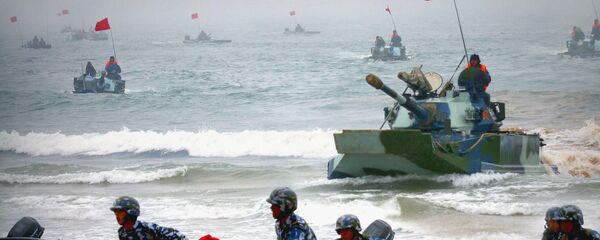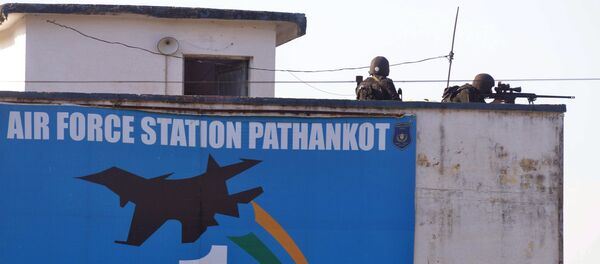The US is in a quandary with China. The nation owns $1.3 trillion worth of US treasury bonds. America’s consumerist economy will be on its knees if Beijing were to dump its debt in one fell swoop, but at the same time it is in the throes of a globe girdling competition for maintaining its global hegemony.
Many experts in India believe that Beijing has already sewed up its continental power — land based – in the regions of East and South East Asia, and India can do little to change that reality.
Hence, the blue water option and the US’s effort at inveigling India into its ‘restrain China’ plan. Having said that, with Prime Minister Narendra Modi at the helm, the policy India has taken is of ‘cooperation and competition.’
This finely balanced foreign policy package that New Delhi has unveiled is hobbled by the suspicion of a vocal section of the Indian elite over Beijing’s strategic predilections. In the recent past, it has stopped the United Nations Security Council from adopting a resolution declaring Maulana Masood Azhar of Jaish-e-Mohammad an ‘international terrorist.’
On the other hand, the US is finely playing the game of influencing public opinion by stating the desire of the US Congress to designate India as a NATO ally. Washington’s view of India has two sides. Firstly, and very importantly it wants the Indian armed forces to continue with their big ticket arms purchases from them. And, secondly at the level of international affairs, be beholden to a steady partner in terms of being a bulwark against China.
This plan has been seen through by many in New Delhi. They believe that countries like the re-emerging powerful Russia to support them more vigorously for a veto-wielding permanent membership of the UNSC. These experts believe that India, along with Russia and fellow travelling countries can create a ‘new global order.’
One such line of thinking is exemplified by a veteran strategic thinker and an eminent scientist, who has been involved with India’s Space and Defense program, Dr V Siddhartha:
“It is almost a cliche now to say the world's geostrategic pivot is moving back to where it once was: to the East, to Asia. But it is only those who look at a map at least occasionally who realize that Russia, east of the Urals, is actually in Asia. For Russians, that is half of their home. Moving about in it is as natural as moving about in your own home. Keeping it safe and secure is natural too; as is evicting squatters and others who intrude into your home without your permission.”
While these thoughts are embryonic still, they are coming up increasingly in the agenda of the non-governmental think-tanks. For them to emerge on the plate of the government, it will take a while considering the post-WWII institutions like the UN, or the IMF and the World Bank are so clearly tilted towards the Western policymakers.



